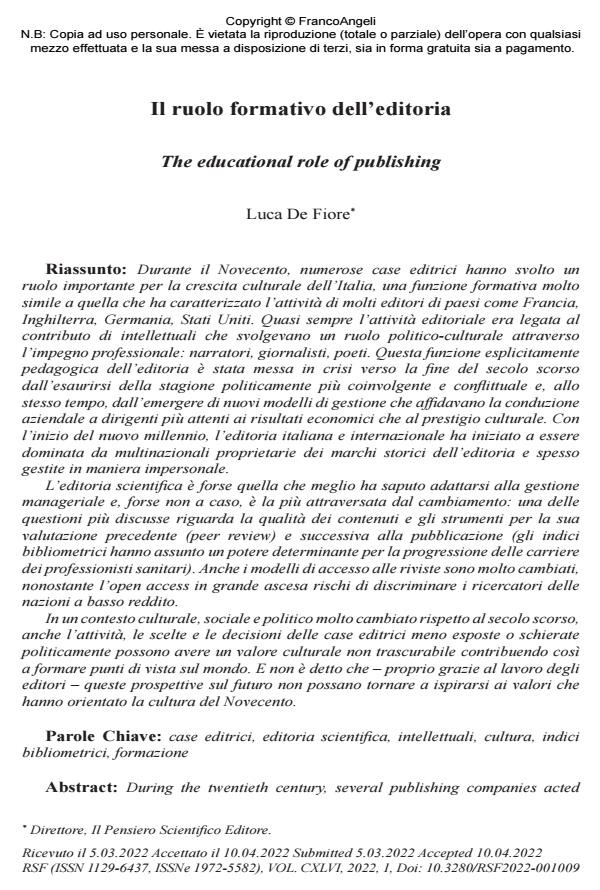The educational role of publishing
Journal title RIVISTA SPERIMENTALE DI FRENIATRIA
Author/s Luca De Fiore
Publishing Year 2022 Issue 2022/1
Language Italian Pages 16 P. 153-168 File size 216 KB
DOI 10.3280/RSF2022-001009
DOI is like a bar code for intellectual property: to have more infomation
click here
Below, you can see the article first page
If you want to buy this article in PDF format, you can do it, following the instructions to buy download credits

FrancoAngeli is member of Publishers International Linking Association, Inc (PILA), a not-for-profit association which run the CrossRef service enabling links to and from online scholarly content.
During the twentieth century, several publishing companies acted as major cultural players. Publishing companies were often guided by prominent thinkers: writers, journalists, poets. They played also a political role through professional commitment. The educational function of publishing got into crisis in the last decades of the twentieth century probably due to the reduction of social conflict and political engagement and, at the same time, due to new rising management models that put economic results above reputation. At the beginning of the new millennium, Italian and International publishing is dominated by corporations owning historical publishing brands. Scientific publishing adapted itself to a managerial approach and, not surprisingly, has been able to take advantage by change: one of the most discussed issues concerns the quality of content and the tools for prepublication evaluation (peer review) and after publication (bibliometric indexes are a determinant of the careers of health professionals). Access models to journals have also changed, with open access in great rise despite it may discriminate low-income nations’ researchers. In a changed cultural, social and political context, even the choices and decisions of the less politically engaged publishers may contribute to building points of view on the world. Who knows that - thanks to the work of the publishers - these perspectives on the future cannot inspire the return to the guiding values of the 20th century.
Keywords: publishing houses, scientific publishing, intellectuals, culture, bibliometric indices, pedagogy
Luca De Fiore, Il ruolo formativo dell’editoria in "RIVISTA SPERIMENTALE DI FRENIATRIA" 1/2022, pp 153-168, DOI: 10.3280/RSF2022-001009